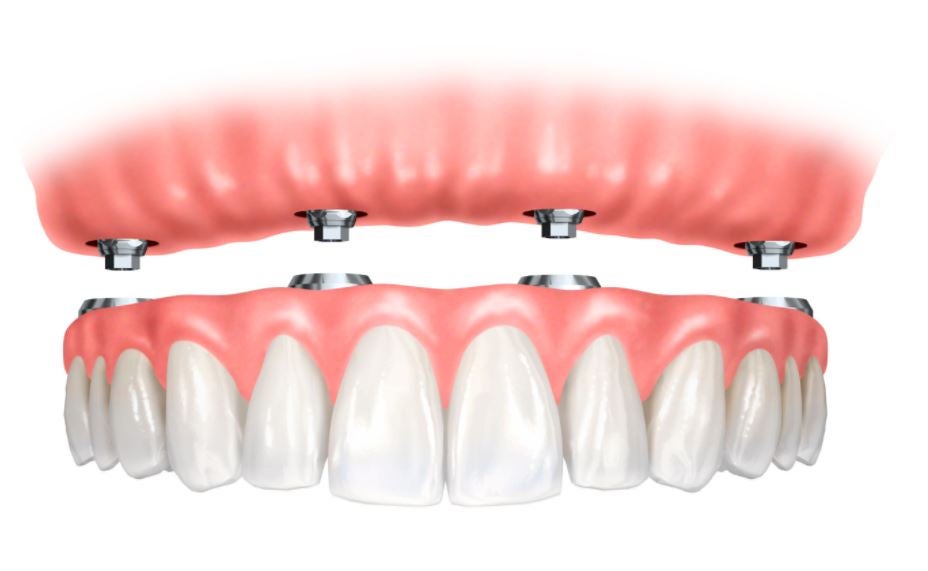How Dental Sense can Save You Time, Stress, and Money.
Table of ContentsGetting The Dental Sense To WorkGetting The Dental Sense To WorkSome Known Factual Statements About Dental Sense See This Report on Dental Sense
are medical devices operatively dental implanted right into the jaw to bring back a person's capacity to chew or their look. They provide assistance for fabricated (phony) teeth, such as crowns, bridges, or dentures. When a tooth is shed as a result of injury or illness, an individual can experience complications such as rapid bone loss, faulty speech, or adjustments to eating patterns that cause pain.Oral implant systems include a dental implant body and dental implant abutment and might likewise consist of an abutment addiction screw. Dental implants. The oral implant body is surgically inserted in the jawbone in location of the tooth's origin. The oral implant joint is usually attached to the implant body by the abutment fixation screw and expands via gum tissues right into the mouth to support the attached fabricated teeth
(https://dentalsense1.wordpress.com/2025/01/11/dental-implants-root-canal-procedures-professional-teeth-whitening/)Framework of The Oral Implant System choosing oral implants, speak with your oral service provider about the possible advantages and threats, and whether you are a prospect for the procedure. Things to take into consideration: Your total health is an important factor in establishing whether you are a great candidate for oral implants, for how long it will require to heal, and how long the implant might remain in location.
Cigarette smoking may impact the healing procedure and decrease the long-term success of the implant. The recovery process for the implant body might take a number of months or longer, throughout which time you commonly have a short-term joint instead of the tooth. the oral implant procedure: Carefully comply with the oral hygiene guidelines offered to you by your oral service provider.
Some Known Questions About Dental Sense.
Implant failing can cause the need for another procedure to deal with or replace the dental implant system. Recovers the capacity to chew Recovers cosmetic look Helps maintain the jawbone from reducing as a result of bone loss Protects the health and wellness of the surrounding bone and gum tissues Assists maintain surrounding (neighboring) teeth steady Boosts high quality of life Damage to bordering all-natural teeth throughout implant placement Injury to the surrounding cells throughout surgical treatment, such as sinus opening Injury throughout surgical procedure (for instance, crack of bordering jawbone) Inadequate feature, such as feeling like the teeth do not attack with each other typically An experience that the tooth is loose or turning in place resulting from a joint screw loosening up Implant body failing (looseness of the implant body) because of systemic infection, which might be more probable in clients with unchecked diabetes mellitus because of neighborhood infection in bone and gum tissues supporting the implant body because of delayed recovery, which might be more probable in clients that smoke Problem cleaning the gums around the implant, leading to poor oral hygiene Untreated gum disease Post-surgical pins and needles as a result of nerve impingement or damage Constantly notify health and wellness care providers and imaging specialists that you have oral implants prior to any type of magnetic resonance imaging (MRI) or x-ray treatments.
FDA is not aware of any type of negative occasions reported for MRI or x-ray procedures with dental implants. Dental implants systems are typically constructed from materials that adhere to international agreement requirements of the International Company for Standardization (ISO) or ASTM International. These criteria have details of what makes a secure material.

An oral implant is a framework that replaces a missing tooth. With screw-like devices, the cosmetic surgeon inserts a dental implant into the jawbone, and it acts as a support for a synthetic tooth, called a crown.
Dental Sense for Dummies
Some individuals are not qualified for oral implant surgery. It is for oral specialists to operate individuals with: acute illnessuncontrollable metabolic diseasebone or soft cells condition or infectionIf these issues are resolved, an individual can have the surgical procedure. In, dental surgeons refrain from operating on people with: If individuals with any one of the above go through dental implant surgery, there is a greater risk of the implant stopping working.

Dental dental implant surgery is a tailored process. Give you time to heal. Attach the article and last crown, bridge or denture.
Next off, your doctor will very carefully place the dental implant into your jaw. Finally, your specialist will reposition your gum tissues and shut the incision with stitches. If your implant is near the front of your mouth, your dental expert will certainly make a short-term tooth for you to use until you heal. That means, you will not have a gap in your smile while you recuperate.
Get This Report on Dental Sense
Throughout the healing phase, your jawbone must fuse to the dental implant. This process can take anywhere from three to nine months.
When your implant heals, your dental practitioner can attach the joint (small adapter blog post) and your last repair (crown, bridge or denture). This normally takes regarding one hour to finish and might require a 2nd small surgical procedure. You find more information shouldn't really feel any type of pain during your dental implant treatment since your company will make use of medication to numb your gum tissues.